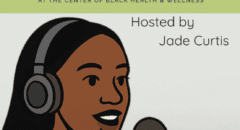
Mozart, Beyonce or Common: Whatever your taste, music may help you recover from a surgery, according to a new review of data on the subject.
"More than 51 million operations are performed every year in the U.S.," lead author Dr. Catherine Meads, of Brunel University in the United Kingdom, said in a news release from The Lancet, which published the findings Aug. 12.
"Music is a non-invasive, safe, cheap intervention that should be available to everyone undergoing surgery," she said. "Patients should be allowed to choose the type of music they would like to hear to maximize the benefit to their well-being."
The only caveat: "Care needs to be taken that music does not interfere with the medical team's communication," Meads said.In their research, her team reviewed data from 72 studies that included nearly 7,000 patients.
The investigators found that listening to music before, during or after surgery significantly lowered patients' anxiety and pain, decreased their need for pain medicines, and increased their satisfaction with their care.
Listening to music at any time was beneficial, but patients who did so before their surgery tended to have better outcomes than those who did so during or after surgery, the researchers found. They also said that patients who selected their own music had slightly larger reductions in pain and the use of painkillers.
Even listening to music while under general anesthesia reduced patients' levels of pain after surgery, but not as much as when patients were conscious during surgery, the findings showed.
Listening to music did not reduce the length of time patients spent in the hospital, the study found.
Two experts in the United States agreed with the findings.
"Music is a powerful tool with roots deep in every culture and civilization -- it is wired deeply into the human brain and soul," said Dr. Ron Marino, associate chair of pediatrics at Winthrop-University Hospital in Mineola, N.Y.
"This is another demonstration of nontraditional, non-pharmacologic methods of helping patients deal with pain anxiety and the general medical experience," he said.
Curtis Reisinger is a clinical psychologist at Zucker Hillside Hospital in Glen Oaks, N.Y. He agreed that "music can have a significant positive impact on a patient's experience while in a medical setting."
Listening to music in the time around a stressful event, such as a surgery, "allows the patient to move their focus from their personal physical pain or psychological distress to that of the audio experience," Reisinger said.
Still, "we must never assume that music will work for everyone," he said. "Some patients may want quiet, or other types of distractions such as TV shows or just listening to the sounds of their surroundings."
Copyright HealthDay News.








